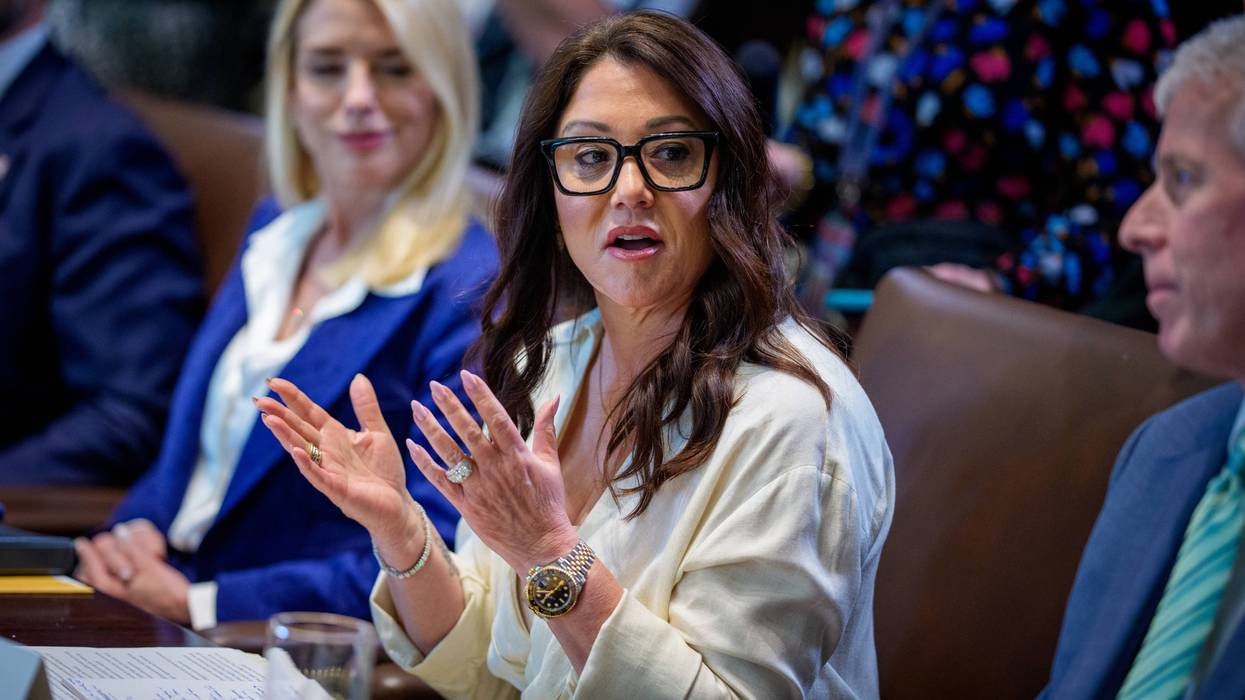The American Civil Liberties Union today mourned the passing of Senator Edward Kennedy (D-MA) who succumbed to brain cancer Tuesday night.
Senator Kennedy was a stalwart champion and defender of civil liberties with a record of public service marked by unending compassion and progress. Senator Kennedy often worked with the ACLU to defend the values and ideals inherent in the United States Constitution, fighting to ensure free speech, equality and justice for all people, particularly the disadvantaged. He consistently was the voice for the marginalized and fought in the Senate for those struggling to live free from discrimination throughout the country. Senator Kennedy's leadership, courage, and compassion will echo throughout the halls of Congress for generations to come.
"The civil rights community lost one of its giants today. Senator Kennedy's lifelong commitment to racial justice and the rule of law has been an inspiration to the ACLU and Americans everywhere," said Anthony D. Romero, Executive Director of the American Civil Liberties Union. "On a personal level, we will miss his wise counsel and encouragement in the ongoing struggle to preserve civil liberties. Senator Kennedy's legacy will live on to inspire generations of civil libertarians to come."
Below is a sampling of Senator Kennedy's numerous legislative accomplishments:
Civil Rights
Senator Kennedy's unwavering commitment to civil rights for people of color, women, people with disabilities is unparalleled by any lawmaker in the modern Congress. Notably, he made the first of his legendary floor speeches on the historic Civil Rights Act of 1964, positioning himself as a leader on racial justice. Senator Kennedy unquestionably remained the Senate's guiding light on civil rights issues, playing a major role in legislative efforts as diverse as guaranteeing equal access to the polls with the Voting Rights Act of 1965 (as well as all subsequent reauthorizations), leading the passage of the [is that right?] Americans With Disabilities Act of 1990 and its reauthorization in 2008, and ensuring an equal place for women in education with the passage of Title IX of the Education Amendments of 1972. A vigorous advocate of women's rights, Senator Kennedy helped ensure passage of the Lilly Ledbetter Fair Pay Act which helped to restore rights taken away by a 2007 Supreme Court case, Ledbetter v. Goodyear, which denied workers remedies for ongoing wage discrimination. That legislation went on to be the first bill signed into law by President Obama.
First Amendment
Senator Kennedy was a life-long defender of free speech and religious liberty. In 1993, he helped pass the Religious Freedom Restoration Act preventing undue governmental burdens on the exercise of religion. After the Supreme Court deemed part of the Act unconstitutional, the Senator pushed for and passed the Religious Land Use and Institutionalized Persons Act in 2000. Senator Kennedy also worked closely with the ACLU to defeat congressional efforts to impede First Amendment rights by attempting to pass a constitutional amendment banning burning and/or desecration of the American flag.
National Security
In 1978, after the revelations of the Church Committee, Senator Kennedy introduced the Foreign Intelligence Surveillance Act (FISA) to act as a safeguard for Americans' privacy from government surveillance. In 2005, when it was revealed that the Bush administration was conducting domestic surveillance in violation of FISA, Senator Kennedy was at the forefront of Congress' outrage and demanded accountability. Senator Kennedy was a vocal opponent of the United States' use of torture and, in 2007, introduced legislation that would bind the government to the techniques approved in the Army Field Manual. He has also been a critic of both the Bush and Obama administrations' use of the state secrets privilege to block national security cases from proceeding in federal courts. The Senator introduced legislation earlier this year to narrow the scope of the states secrets privilege.
Immigration
No lawmaker has done more than Sen. Kennedy in the ongoing fight for an immigration system that is humane and just. Often citing his own history as the great-grandchild of Irish immigrants, Senator Kennedy fought tirelessly for the rights of all people in the U.S., regardless of where they came from. Since 1965, he has worked in close partnership with leading Republicans to pass immigration legislation that provided relief to domestic abuse survivors, human trafficking victims, workers, families, and refugees. In recent years, he and Senator McCain sought to overhaul and reform our immigration laws. In all his work, Senator Kennedy pushed to make U.S. immigration policies consistent with our constitutional values of fairness and opportunity for all.
Criminal Justice
Senator Kennedy was a consistent supporter of efforts to reform the criminal justice system, recognizing the need to bring fairness to a system too often plagued with racial disparities. His forthright opposition to the death penalty was particularly commendable given the fact that so few politicians are willing to take a public stance supporting its abolition. The fact that he and his sisters wrote to the district attorney of Los Angeles in 1969 asking that the killer of their brother Robert not be sentenced to death speaks directly to his principled view on this issue.





